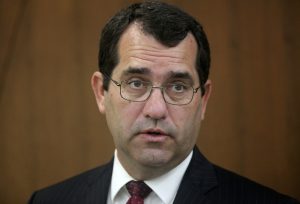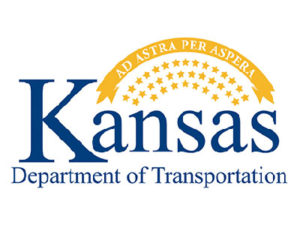Dodge City region searching for access to 4-year college
DODGE CITY, Kan. (AP) — Unlike many other rural cities, Dodge City is experiencing a strong economy that is making it an anchor in Kansas’ southwest region.
The city, which as long marketed its Old West ties, has in recent years completed $86 million in renovations to its schools, a new $12 million waterpark, a $6 million addition to Boot Hill Museum, and attracted several new businesses. Most of the growth comes from the thousands of people who work in the region’s slaughterhouses, Kansas News Service reported .
But city and business officials said the growth is hindered by a lack of a four-year college in the region, which has left many middle-class jobs — such as teaching and health care — unfilled as students often leave for higher education elsewhere and don’t return to a 28-county region without a state university.
Advocates said the area needs a satellite campus of other state universities, which would build on the region’s community colleges.
“It’s the only way,” said Joann Knight, head of economic development, “to really address our health care issues and the lack of education out here.”
The average Kansas county has one primary care doctor per 1,330 residents, more than twice the average in the Dodge City region. Dentists and mental health providers are rare and patients who need medical specialists have to drive long distances for care.
Wichita State University researchers surveyed hundreds of health experts and community leaders about health care in Dodge City and southwest Kansas.
Researchers found people die younger in southwest Kansas than the rest of the state and nationwide, and they are hospitalized more often with conditions like diabetes and asthma that can be controlled with regular primary care.
Besides the health implications, Dodge City and region watch many students leaven for four-year colleges and never return.
“Unfortunately, much of the time they don’t,” said Bud Estes, a state senator from Dodge City who has seen three of his four children leave and not return.
Nationally, most freshmen enroll in college within 50 miles of home. Dodge City is 105 miles from Fort Hays State and Wichita State is 160 miles away.
Barclay College, a Christian school of about 250 students and the region’s only four-year campus, is 60 miles east of Dodge City in Haviland. Neither that nor community colleges in Dodge City, Liberal or Garden City provide access to a broader range of four-year degrees.
Xiomara Garcia enrolled in Dodge City Community College to earn an associate’s degree in nursing on her way to earning bachelor’s and graduate degrees to become a nurse practitioner. She said she would be happy if a state university campus was nearby.
“This is where I’m from,” she said. “I have my family here, all the resources I need are here. The only thing missing is the actual education.”
Educators and civic leaders in Dodge City, Liberal and Garden City are pursuing a university center — a partnership among local community colleges and state universities that could start with a focus on health care and expand from there.
The idea is gaining momentum. At least three universities have visited to gauge the prospects. Fort Hays State will soon finish a feasibility study on providing a few bachelor’s programs as early as next fall.
“It needs to be a win-win for the institution, for the local community and obviously for the student,” said Shane Bangerter, of Dodge City, who is a member of the Kansas Board of Regents. “What I would like to see happen is to get some of these programs started and then we can better judge.”









